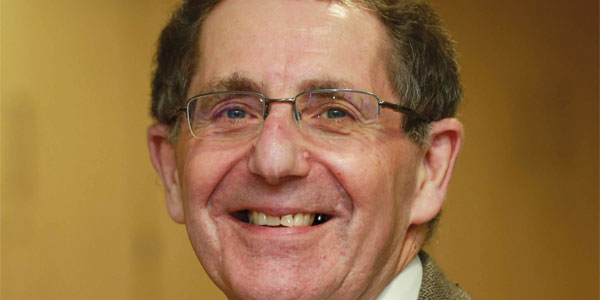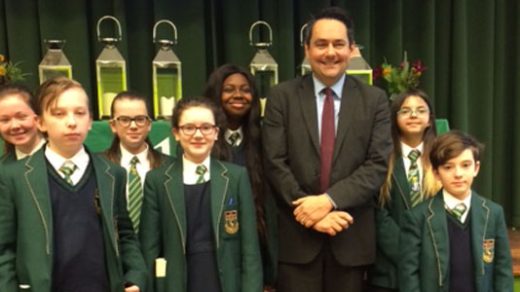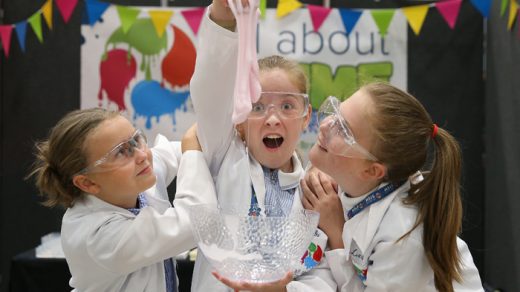Meet the Headteacher Phil Daniels

It’s been nearly five decades since Phil Daniels started teaching. Later this year, Phil will say goodbye to the classroom once and for all and pass the torch to a new leader. Educate reminisces with Phil about his time at Springwood Heath Primary School, his career highlights and what lies ahead for his retirement.
Fond Farewell
by Hannah Fowler
A lot has changed in the 47 years Phil Daniels has been teaching. Not only has he taught through milestone educational reforms such as the introduction of the national curriculum (1989) and Ofsted (1992), he’s seen first-hand the evolution of Liverpool as a city too.
“When I first started teaching in Liverpool in 1970, Liverpool was a very different place to what it is now,” he says. “There was no national curriculum, there was an 11 plus; everything was geared towards the children who could, there wasn’t a great deal for the children that couldn’t.”
But Mr D (as he’s affectionately called by pupils) says he was fortunate enough to work with aspirational headteachers in his early years that put children first. “That has had a massive influence on me,” he explains. “They were all very hardworking people who cared about children first and foremost and wanted children to do their very best.”
In the early 90s, the Liverpool Primary Headteachers Association (LPHA) was formed and Phil quickly signed up. He says this enabled primary schools in the city to ‘move beyond the turmoil’ and focus on the children. “By working together, we kept ourselves strong,” he recalls. “And when Liverpool had a major problem with government policy it was Liverpool primary schools that helped to move it forward and sowed the seeds for the strong Liverpool place that it is now, because Liverpool as an education hub is a strong place. Primary school children in Liverpool are in good hands, very good hands.”
With this ethos, it’s no wonder Phil has spent much of his career (30 years to be exact) as headteacher at Springwood Heath Primary School. A mainstream primary school which also caters for children with special educational needs, disabilities and complex medical needs – it merged with special school Harold Magnay in 2004 – it promotes a caring, integrated environment where children, irrespective of disability, can achieve their highest potential.
“When the going gets tough, (Liverpool) pulls together, and we try to do that at Springwood Heath,” explains Phil. “Our motto for the school is ‘Success through Caring and Learning’. It was a very conscious decision by myself and the school governors to put the word caring before learning, because once you get the caring bit right the learning can follow.”
Springwood Heath is one of only a few primary schools which has a 50/50 split of special needs and mainstream learners, and all children are taught in the same class. “It is particularly important to us because we are a mainstream primary school not a special school,” explains Phil. “So our focus is on all children and the fact that our special needs provision is recognised as well as other things, we’re especially proud of it.”
Phil’s path to teaching hasn’t been all that conventional or planned.
Approaching the end of a Classics degree at Bangor University, Phil was looking to extend student life a little longer when he came across a primary education course which had just launched. “I had no thought of going in to primary schools,” he explains. “I didn’t know a great deal about primary schools or education, I came in to it because I wanted to spend another year at Bangor.”
It was only when he returned to Liverpool to do his teaching practice did he appreciate that perhaps, teaching was meant to be. “I realised that actually I could communicate with children, I could enthuse children and they enthused me,” he says.
Alongside his role as headteacher at Springwood Heath, Phil has spent much of his career working on different teaching projects. One highlight for Phil was working with the local authority to implement the Excellence in Cities Programme. This involved introducing and establishing the role of the learning mentor in primary schools, as prior to 2000 the role didn’t exist.
“My job was to implement it,” explains Phil. “We wrote a training programme and trained about 120 staff who became learning mentors in primary schools. The majority of those people are still in post today and some of them have gone on to great things.”
He has also used his time to work on a national scale and worked with the National Primary Headteachers Association for nine years from 2005, and during 2012-2015 Phil was joint-CEO of the Liverpool Learning Partnership (LLP). He helped set it up as an organisation to promote cross-phrase working within Liverpool schools, further education and higher education establishments.
If Phil has any concerns about the future of education, it’s ensuring that no child is left behind. “When we set up the partnership one of the first sayings we had was that we wanted to make sure that in an ever changing world no child was left behind,” he says.
“And that meant that just on a simple level if going to an art gallery was for one child then every child ought to have the opportunity to go to the art gallery; so how do you go about doing that? Those things are very important to me.”
“The worry is when cuts have to be made; cuts are invariably made around the margins – ‘what can we do without?’ What I say is what we can’t do without is making sure that everybody has opportunities and it’s not just opportunities for the few,” he adds.
More recently Phil has been working with Liverpool Hope University to support their teacher training programme and works with the Schools Direct programme in Merseyside and Cheshire to support trainees as they develop in to young teachers.
To round off Phil’s final academic year as headteacher, Springwood Heath won two awards (SEND Provision and Community Partnership) at the Educate Awards 2016.
“To win them this year was an absolute delight,” he says. “We’ve embedded and sustained what we’re doing and we see the awards as recognition of the work over a number of years, it’s not just a project, it’s not a one off. I wouldn’t be human if I didn’t think, as I’m coming up to my retirement, to have been recognised twice is quite satisfying.”
Retirement marks a new chapter in Phil’s life to share his own ideas on education rather than the daily practicalities of running a school. “There’s a difference,” he explains. “As a head you have to be practical as well as philosophical; when you’re not a head you can be a lot more philosophical and follow your beliefs a little bit more.”
Phil hopes never to be too far from the career he loves so much. He wants to continue to support and develop young teachers in the profession and if any headteachers want to draw on his own experience, he says his door will always be open.
Aside from this, Phil will enjoy the downtime retirement will bring and already has an envious itinerary to keep him busy. “I’m going to Australia to begin with; my son and daughter-in-law are travelling at the moment so I’m meeting up with them,” he says.
Learning Spanish is also an ambition and Phil is keen to become an expert in flower arranging (“I love fresh flowers; I always have fresh flowers in school. I just think that beautifully arranged flowers do something for people, it makes people smile”).
So how does Phil sum up his 47 year career? “It’s been fun,” he reflects. “It’s made me a happy person and I hope I’ve made lots of other people happy and I hope their lives have been as enriched by me as I have by them. I think that’s all any teacher can do, is to say I hope I’m having an effect on you because you’re having an effect on me.
“Another thing I often say to children is if you meet me outside school don’t walk on the other side of the road, come over and say hello.”



